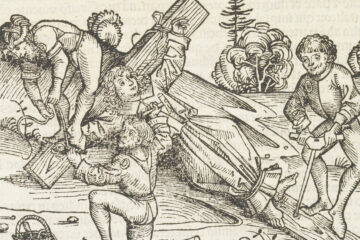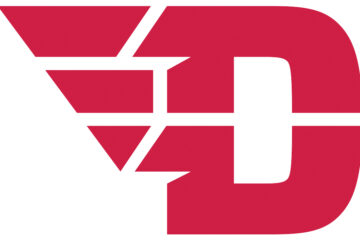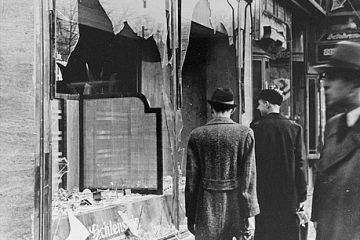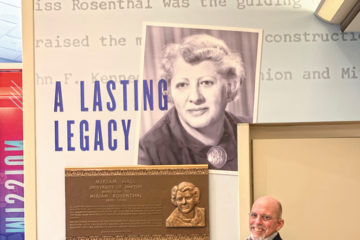UD to expand Judaics classes

New hire in religious studies department, partnership with Reform seminary aim to broaden interfaith approach
By Marshall Weiss, The Dayton Jewish Observer
In addition to the standard Introduction to Judaism and Holocaust courses at the University of Dayton, undergraduates will soon be able to enroll in Jewish Thought and Jewish Mysticism.
These will be the first new Judaic studies offerings from the Catholic university’s department of religious studies in recent memory, brought about through the hire of an assistant professor in the department, and a new graduate fellowship in partnership with Hebrew Union College-Jewish Institute of Religion in Cincinnati.
UD Assistant Prof. Dr. Dustin Atlas arrived on campus in the fall. A native of Toronto, he received his doctorate in religious studies from Rice University. Most recently, he taught simultaneously at Tel Aviv University and Al-Quds Bard College in Abu Dis, in the West Bank.
Also last semester, HUC-JIR post-doctoral student Andrew Higginbotham came to UD as the first formal Ruslander/Friedland Fellow of the two institutions.
Along with his teaching responsibilities, Atlas oversees the fellow’s work at UD, and is writing the new Judaics classes.
“It has the potential to be incredibly productive,” Atlas says of the fellowship. “There are a lot of partial movements going on, a little bit here, and a little bit there,” he says of the Judaic course expansions. “My hire will hopefully help with that. Courses die unless someone is constantly pushing on them, so that’s key to my job, to make sure they get taught.”
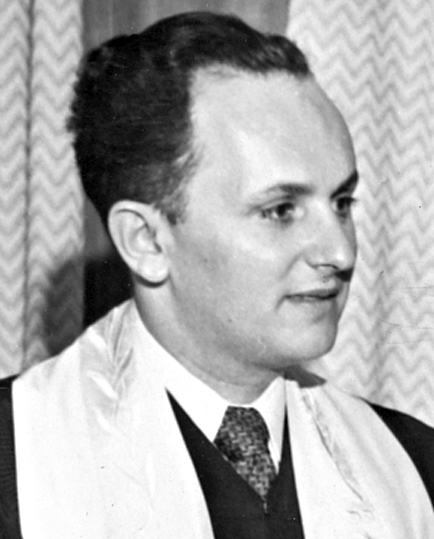
Five years in the making, the Ruslander/Friedland Fellowship honors the legacy of two bridge-builders in Dayton Jewish-Christian relations.
Rabbi Selwyn Ruslander, Temple Israel’s senior rabbi from 1947 until his death in 1969, secured the funds to establish the Sanders Professorship of Judaic Studies.
The Sanders program provided for one Judaic studies professor to teach at United Theological Seminary, the University of Dayton, Wright State University, and for a time, at Antioch College.
Dr. Eric Friedland served as Sanders professor from 1968 until his retirement in 1998. After Friedland’s retirement, UTS, Wright State, and UD went in their own directions with Judaic courses.
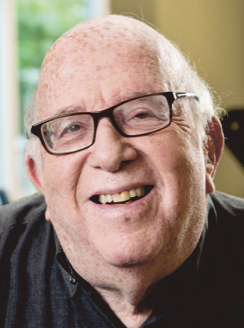
Wright State established the Zusman Chair of Judaic Studies, held by Associate Prof. Dr. Mark Verman. Although the University of Dayton sought to establish a Judaic studies professorship during President Dan Curran’s tenure, fund raising for the potential position never took off.
The University of Dayton fell into a holding pattern, offering Intro. to Judaism and its widely popular Holocaust course, both taught by adjunct faculty member Rabbi Judith Bluestein, a graduate of HUC.
Six years ago, retired Jewish Federation of Greater Dayton Executive Vice President Peter Wells and local attorney Marshall Ruchman — a longtime Temple Israel member — proposed the fellowship to UD and HUC as a way to expand UD’s Judaics offerings short of a professorship. It took Wells, Ruchman, UD and HUC-JIR until last year to raise the full $500,000 to make the fellowship a reality.
“The intent was to keep a viable Jewish presence on the UD campus, with the reality of no longer having the Sanders program,” Wells says.
“We didn’t have a very wide range of classes,” recalls Dr. Dan Thompson, chair of UD’s Religious Studies Department. “Judith Bluestein taught the classes for many years, and she passed away from cancer. Her passing (in 2014) coincided with the first visitors from Hebrew Union College, when they started to step in and take on those classes.”
After Bluestein’s death, UD tested the waters with HUC when it hired Rabbi Adam Rosenthal as an adjunct to teach its Intro. to Judaism and Holocaust courses. Rosenthal is pursuing his Ph.D. in medieval history and literature at HUC. Since 2015, he has also served as the monthly rabbi-in-residence for Beth Jacob Congregation in Harrison Township. Rosenthal continues to teach UD’s Holocaust course.
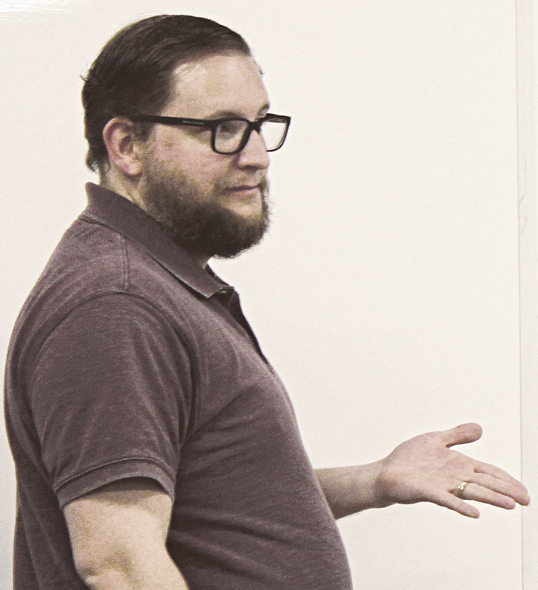
Higginbotham, the first official Ruslander/Friedland Fellow, is a fifth-year student at HUC preparing for his dissertation on early rabbinic literature. He’s also an ordained Christian minister with 10 years of experience teaching on the college level.
“Both institutions share an interest in interfaith dialogue and deeper understandings of Jewish and Christian traditions,” says Dr. Jason L. Pierce, dean of UD’s college of arts and sciences. “The department has been building up our capacity to offer courses focusing on different faith traditions.”
In addition to Atlas, who oversees Judaic studies, Pierce says the department now has a faculty member to focus on Islamic studies. As part of UD’s revised curriculum learning outcomes, each undergraduate student is required to take an introductory and upper level religion course.
“Dustin’s hire was seen as a way to anchor a robust Jewish studies program inside the religious studies department, but also inside the college of arts and sciences,” Pierce adds.
Dr. Jonathan Cohen, dean of HUC-JIR in Cincinnati, describes the yearly fellowship program as “quite unique.”
“It reflects a high value that we place on crossing denominational lines, on crossing religious lines, and on working together and teaching together,” Cohen says. “This is something we try to model in our school with our students. A Catholic university doesn’t have to have a Judaic studies person. This in itself is very meaningful.”
“This is very much in the spirit of interfaith amity since the days of the Second Vatican Council and the university’s faithful support of the Sanders Scholar in Judaic Studies during the 30 years of my tenure,” says Sanders Emeritus Prof. Dr. Eric Friedland.
“It needs to happen,” Atlas says of the expansion of Judaics courses at UD. “Especially right now, because of the potential for extreme misunderstandings that has to be nipped in the bud.”
To read the complete March 2017 Dayton Jewish Observer, click here.


